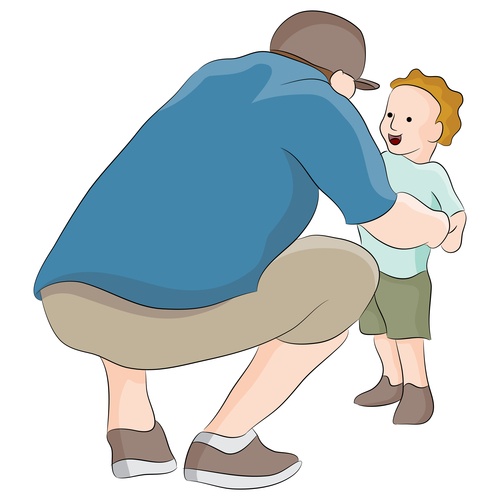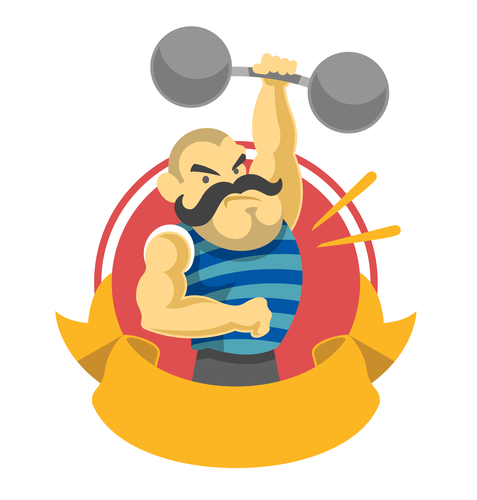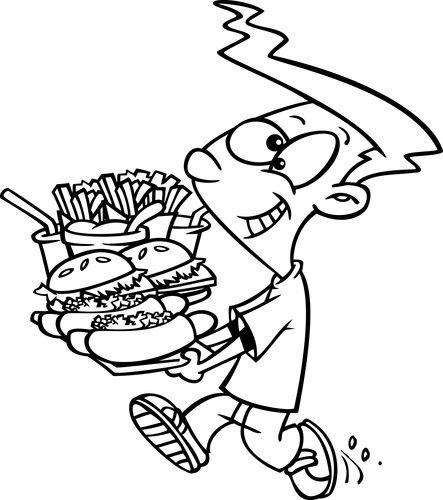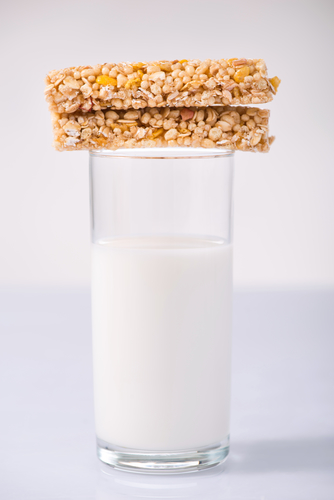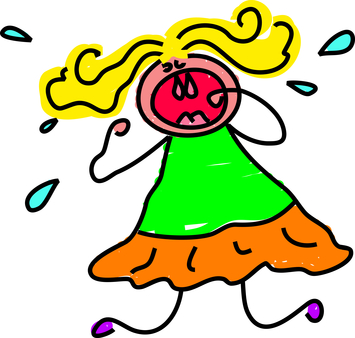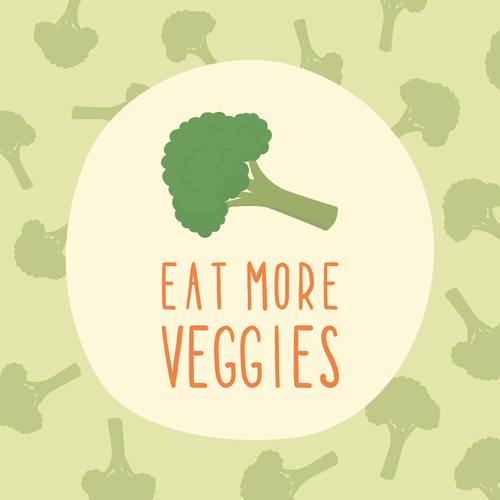You’ve probably heard, even from me, that you shouldn’t let your kids dictate what they eat. Don’t be a short-order chef!!! While that sounds simple, teaching kids to eat right isn’t! And, there are always exceptions to every rule! © illustrart/DepositPhotosIf you’re unsure about whether or not to give in to your toddler’s feeding demands, here’s what you need to consider before making your decision. When to Say Yes to Your Child’s Food Requests (Demands?) 1) Your child is generally a good eater and she just has a hankerin’ for something. 2) Grandma likes to indulge your child and she only visits occasionally. 3) It’s the holidays and some other special event. 4) You share menu planning in your house, kind of like a …
How to Communicate Effectively with a Toddler
You’re forgiven for thinking I’m nuts because there’s no way to communicate with a toddler. Source: cteconsulting /depositphoto.comThey’re ornery. Opinionated. And taken to saying, “NO!” – a lot. And I agree. But no matter how you look at it, you’ve still got to talk to them. And when it comes to teaching healthy eating habits, communicating effectively is the key. Read Table Talk. Children can’t cooperate if they don’t know how eating decisions are made. When it comes to eating, many parents either don’t talk to their kids at all (read Surprise! Surprise!) or they talk to their children about the wrong things. As a result, eating decisions seem arbitrary. Read You Can’t Make Me Eat It! 1) Be open about your goals. I am …
My Psychology Today Post re: Kids Who Don’t Eat Dinner
One of the most vexing problems parents have is kids who don’t eat—or don’t eat enough—at dinner. It can make you tear your hair out. In my recent Psychology Today post, I take a look at how parents often inadvertently teach their kids NOT to eat dinner—and what you can do to turn things around. I hope you’ll take a moment to read it. ~Changing the conversation from nutrition to habits.~
STUDY: High Protein Intake Related to Weight Gain in Young Children
If you’re a pediatrician you’re probably familiar with the “Early Protein Hypothesis.” But if you’re a parent, you’re probably saying, “huh?” The Early Protein Hypothesis tries to explain the relationship between high protein intake in toddlers and later BMI and obesity risk. Yes, too much protein early in life can be a bad thing. Who knew? This research supplies yet more evidence that habits matter. Start your kids off early on too much protein and the impact probably won’t be what you expect. The solution: Rather than focus on getting protein—or any particular nutrients—into your kids. Teach your children the three habits of healthy eating. Proportion – Read Slackers Rule Variety – Read Variety? But My Kids Won’t Eat It! Moderation – Read Size Matters Most …
STUDY: Teen Boys Eat More Protein Than They Need
Teenage boys are hungry. They eat a lot of food. And, it turns out, according to research reported in The New York Times, teenage boys eat too much protein. What do the experts recommend? Source: ronleishman/depositphotos.comThe answer probably won’t surprise you. Teenage boys, like the rest of us, should eat more fruits and vegetables. Read The New York Times article Last week I wrote about the Early Protein Hypothesis, which tries to explain the relationship between high protein intake in toddlers and later—at age 5— BMI and obesity risk. Read that post. Most young children get more than enough protein from milk. Children 1-3 years old need about 13 grams of protein daily. Milk and yogurt contain 8 grams of protein per cup. Two cups=16 grams of …
Quit These 10 Crippling Parenting Habits Before Your Child Turns 2
Research shows that many kids have their healthiest eating habits before age 2. And it makes sense. During the weaning phase, parents feed their kids primarily fruits and vegetables…not chicken nuggets! Enter Toddler Kingdom and the world gets turned upside down. Toddlers are notoriously difficult eaters. It’s time to adopt the right habitude. (Like that word?) If you don’t change how you parent around food, you can’t change how your kids eat. Keep doing the same thing and you’ll continue to get the same results. Source: iqoncept /depositphotos.com10 Crippling Parenting Habits 1) Habit: Making your kids eat the last bite. Lesson: Other people know how much you ought to eat. It’s important to be full when you eat dessert. 2) Habit: Following your toddler around …
Some Thoughts on How to Actually Change Feeding Strategies
As dissatisfied as many parents are with the way their toddlers (or even older kids) eat, the thought of changing strategies can be daunting. I’d go so far as to say it might even be paralizing. Here are the 6 steps you need to implement in order to achieve the change you desire. Remember, success comes when you adopt the Habits Approach — or catch the habitude! Eating isn’t really about nutrition, it’s about shaping behaviors. 1. Recognize that what you’re doing works—at least in some way. Yes, the way you and your kids interact around food may not be moving your kids towards new foods or a healthier diet…but it does something positive for you. The quesion is, what? For most parents, the answer is straightforward: …
Healthy Snacks for Kids: Bars vs Cookies
In the spirit of Eat This, Not That!, I’ve done a series of posts over the years pitting foods against each other. But rather than assess the nutrition, I compare how different foods influence habits. Here I discuss bars and cookies. source: yacobchuk1 /depositphotos.comFrom a Habits Perspective, if a bar seems like a cookie, then it is a cookie. And so… If you wouldn’t give your kids cookies every day, then don’t give them bars every day. And if you give your kids a bar one day, don’t give them cookies that same day. Think of this as the if-it-quacks-like-a-duck argument. This is especially true when toddlers are just learning to eat right. From a habits perspective, bars and cookies are …
The Hunger-Induced Meltdown: Is It Real?
Few things strike as much fear into parents as the hunger-induced meltdown. Many parents solve the problem by preempting meldowns by carting a boatload of snacks around. I should know. I used to do it too. Teaching kids to snack on demand is a bad lifelong habit to have. Researchers have concluced that some kids eat up to 10 times per day and that snacking is frequently no longer associated with hunger. What’s more, there is no way to tell if your child’s meltdown is really related to hunger. Doling out snacks in that scenario just rewards bad behavior. Here’s a post from the archives that explains why you can never know if your child’s meltdown really is due to hunger and one way you could respond. —————————————- …
Teaching Toddlers to LIKE Veggies: The Most Important Public Health Challenge of Our Time
The New York Times has published two articles lately that that highlight the importance of preventing obesity before it takes hold. The first article: Contestants on “The Biggest Loser” ended up with slower metabolisms after losing weight than they had before losing weight. And, their metabolisms never rebounded. The result? participants regained 70{7920e18cf5186565893a18d1f69fa52bf2806dc683a7bfcea51d671d2f7d8125} of their lost weight. The second article: The problem is not willpower. It’s neuroscience. Your brain figures out your body set point, based on genes and life experience, and then works hard to keep you at that weight. Obese people who exercise, eat enough vegetables and don’t smoke are no more likely to die young than normal-weight people with the same habits. Source: kondratya /depositphotos.com 1) There may be no more important …

